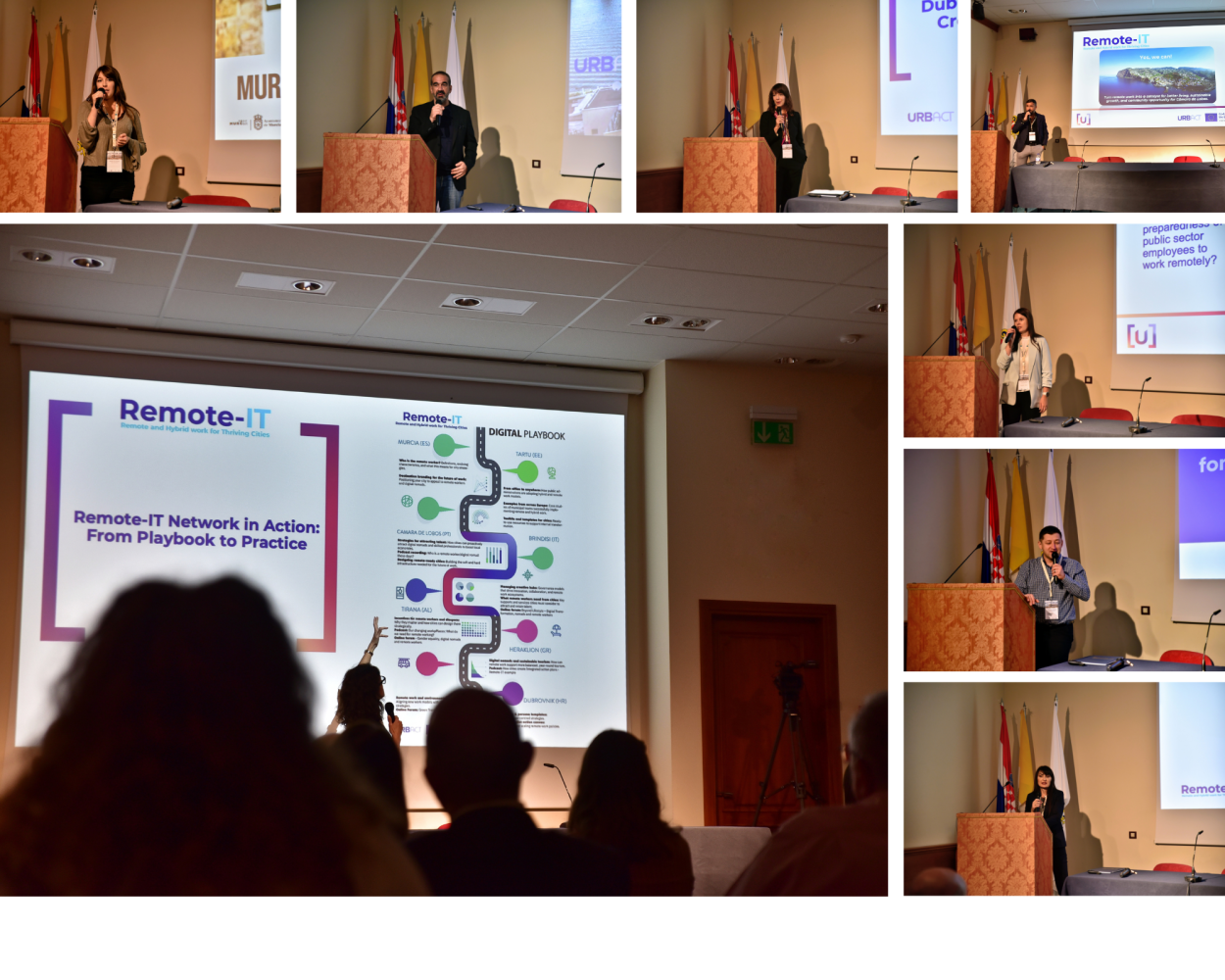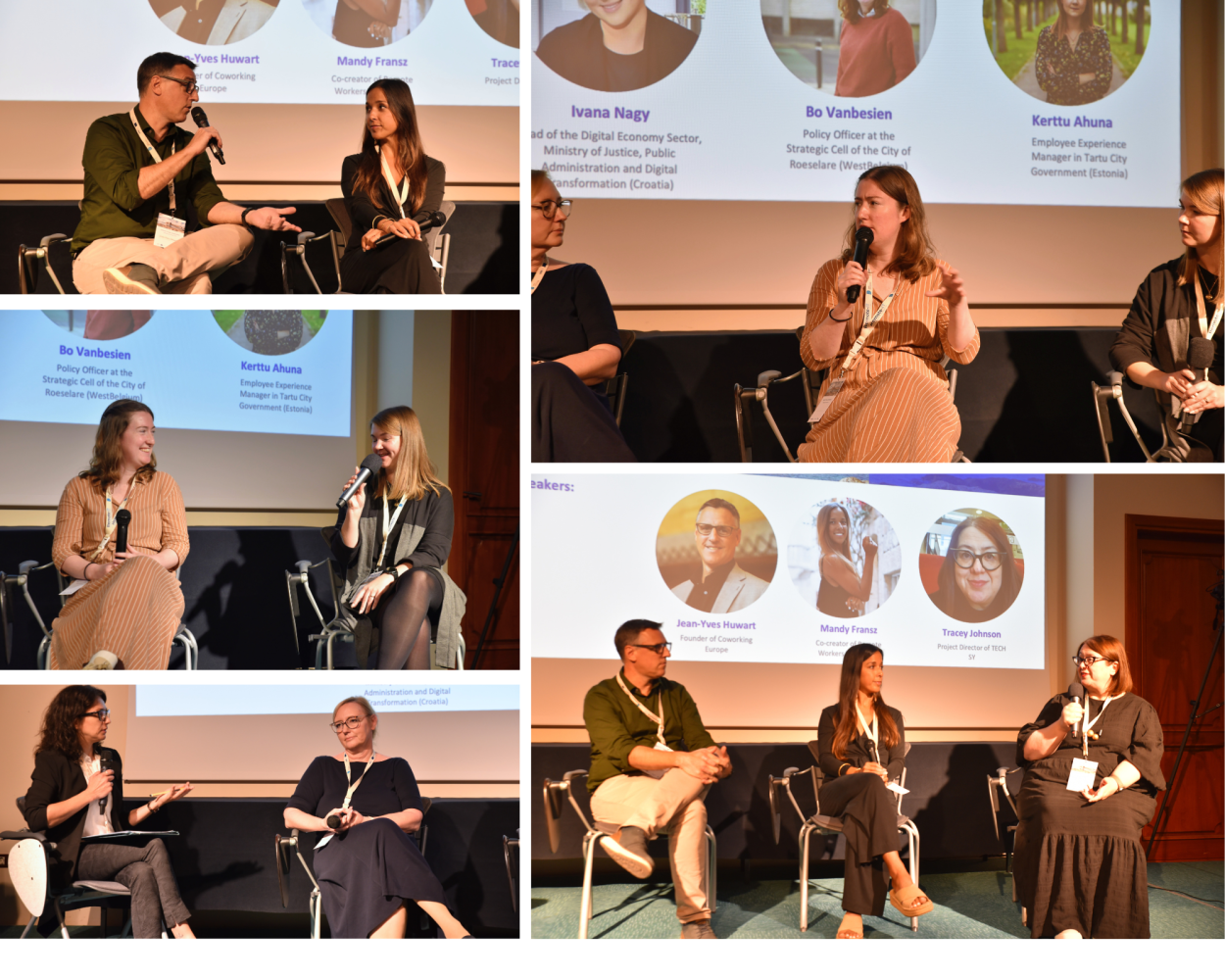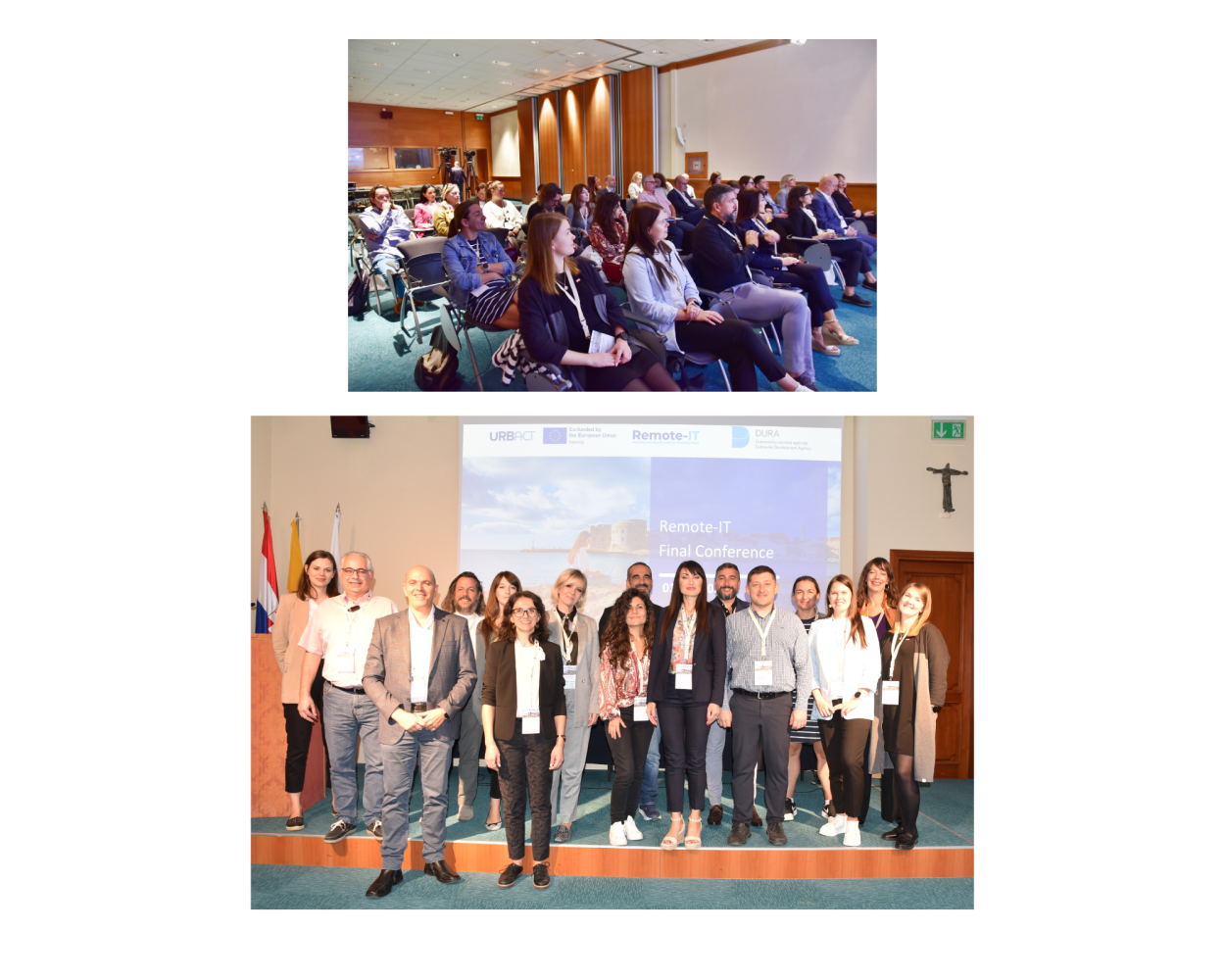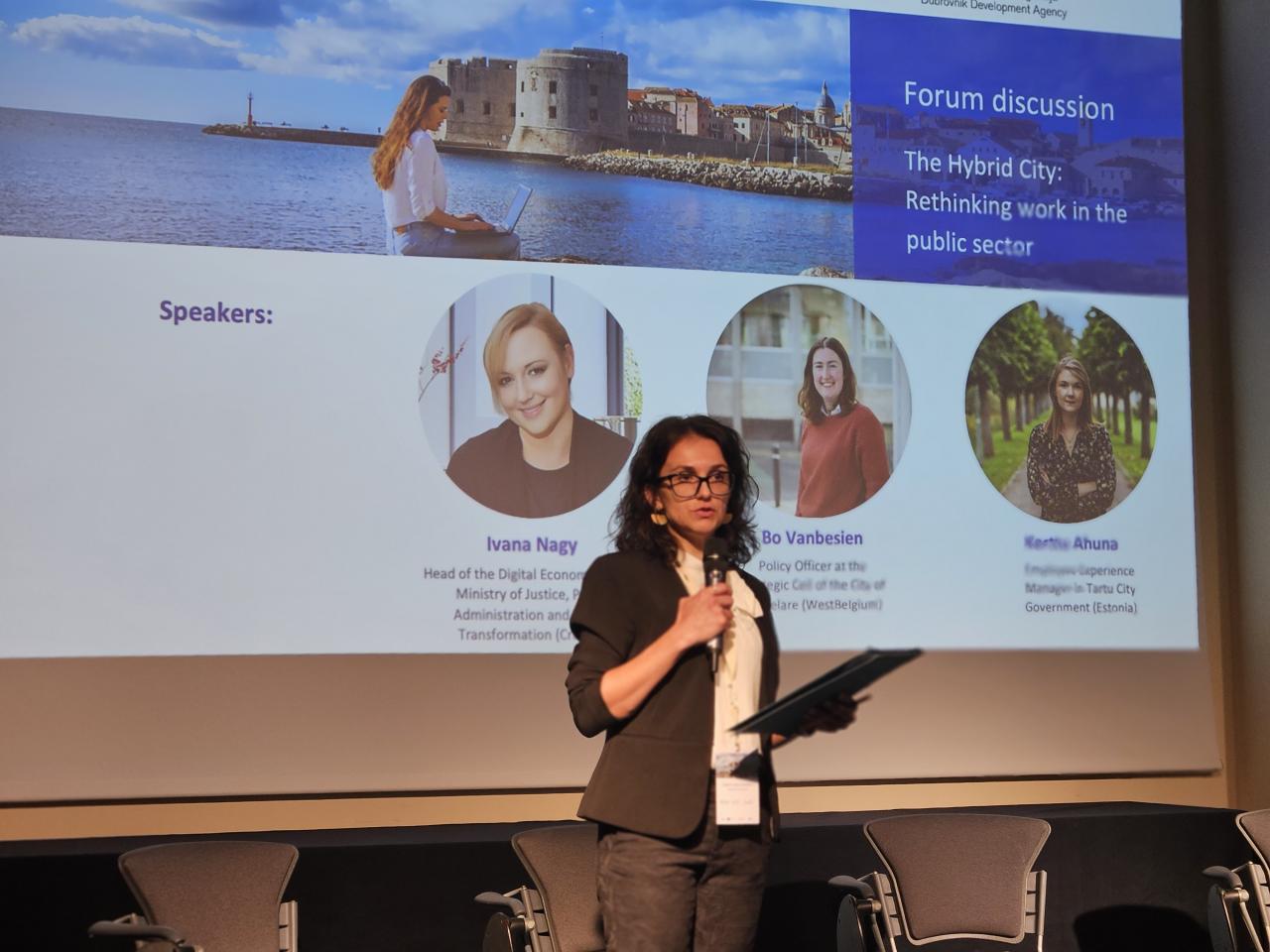On the Wednesday 1 October, in Dubrovnik, Croatia, we marked the conclusion of the Remote-IT network that brought together eight European cities over the past two and a half years to explore how remote and hybrid work are reshaping urban life, economies, and governance. What began as a question into the rise of remote work has evolved into a deeper conversation about how cities themselves must transform, not only to attract and retain talent, but to lead by example in how they govern, deliver services, and foster innovation.
The final event was structured around the Remote-IT Digital Playbook, which captures the network’s collective journey - from understanding who remote workers are and how to attract them, to managing creative hubs, linking remote work with sustainability, and designing policies through the lens of user experience. City representatives shared their stories, insights, and testing actions developed throughout the project, illustrating the diverse ways cities of different sizes and contexts are approaching this transformation.

A recurring message throughout the day was that remote work is not a trend to adapt to, but an opportunity to shape. Cities that understand the evolving needs of workers and businesses, and that design integrated, people-centred strategies - will be the ones that thrive in the future. As one speaker noted, “We are not just competing for talent, we are competing for belonging.”
The two panel discussions offered a deeper look into how remote and hybrid work are reshaping both public administrations and urban ecosystems. The first panel, “The Hybrid City: Rethinking work in the public sector,” explored how cities and national administrations are adapting internally -from piloting hybrid work models to transforming organizational culture, leadership, and service delivery. Panelists reflected on the need to balance flexibility with accountability, maintain public trust, and link hybrid strategies to talent attraction and performance. The second panel, “Cities as Enablers: Supporting ecosystems for remote work and digital nomads,” shifted focus outward, examining how cities can build long-term support systems that go beyond short-term promotion. Speakers emphasized the importance of collaboration between public authorities, coworking operators, and local communities, as well as the need for hospitality-level services, and sustainable ecosystem development. As one panelist noted, “Ecosystems are built, not branded.”Error! Filename not specified.

The discussions in Dubrovnik reaffirmed that the legacy of Remote-IT lies not only in the strategies developed, but in the mindsets changed. By combining innovation, inclusiveness, and cross-sector collaboration, cities of all sizes can position themselves as laboratories for the future of work. The journey continues - from pilot actions to lasting urban policies that make flexibility, resilience, and quality of life a shared reality.

Written by Alisa Aliti Vlasic, URBACT Lead Expert for Remote-IT network


